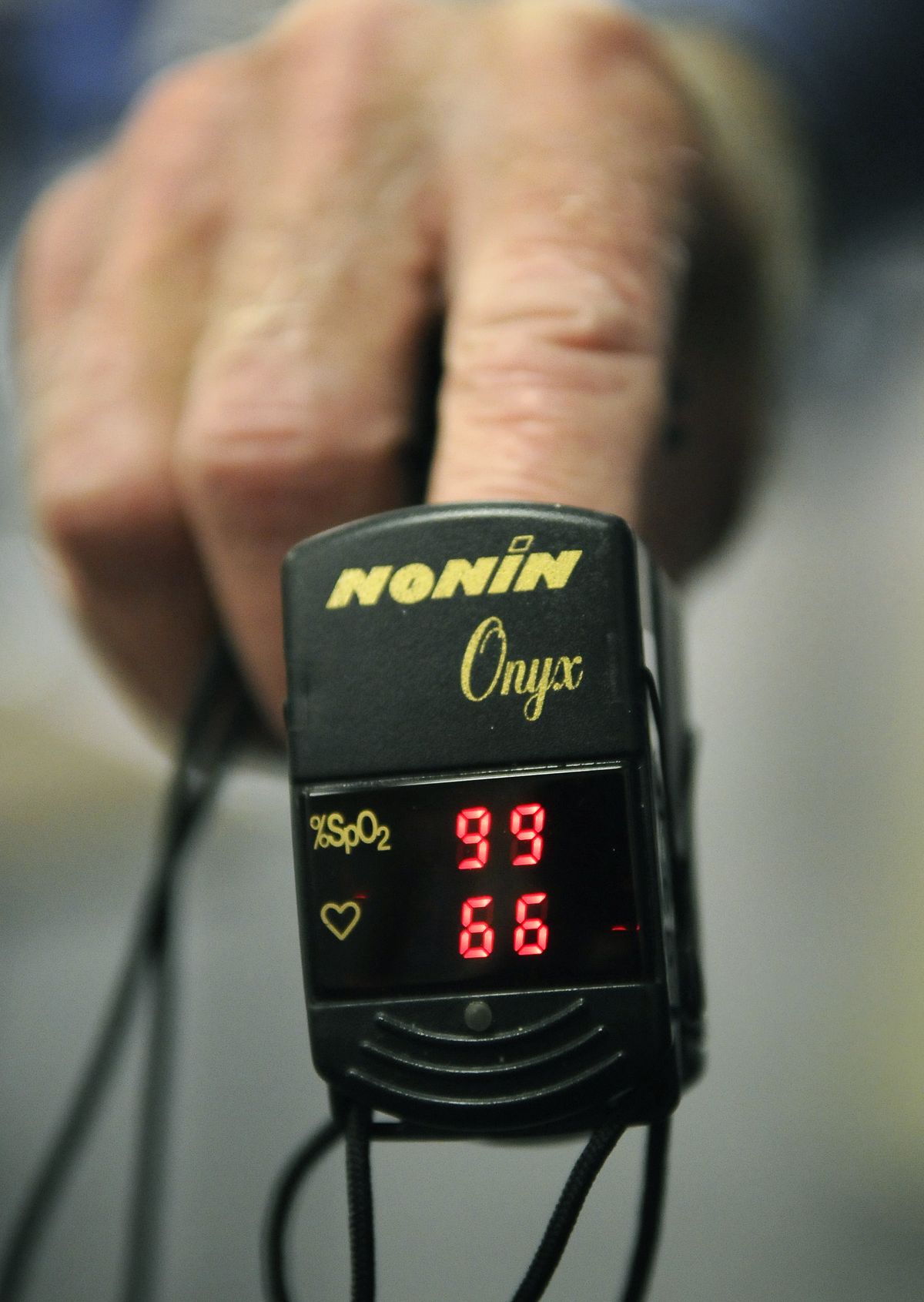Seventh-day Adventist Church preaches more healthful lifestyle

As pastor of the Spokane Slavic Adventist Church, the Rev. Volody Nesteruk not only nurtures the spiritual and emotional growth of his congregation. He also wants to make sure they’re healthy – in spirit, mind and body.
Last week, members of the Russian-speaking church took part in a three-day seminar that included cholesterol, Body Mass Index, blood pressure and other health tests. Some participated in a timed one-mile walk.
The free event, which took place at Spokane Valley Partners, also featured posters in Cyrillic that promoted the importance of Vitamin D, getting enough sleep and eating a healthy diet with plenty of whole grains, fruits and vegetables.
“We believe the body is the temple of the Holy Spirit,” said Nesteruk. “We, as a church, have a mission – not just to preach the Gospel spiritually, but also to administer to people’s needs.
“That means living a healthy lifestyle and teaching others to take care of themselves and improve their quality of life.”
Since it was established in the 1860s, Seventh-day Adventism has focused on healthful living and wholeness, said Dr. Jay Sloop, a physician and health ministries director for the Upper Columbia Conference of Seventh-day Adventists, the administrative headquarters for more than 25,000 members of 130 churches in Eastern Washington, North Idaho and northeastern Oregon.
Members of this Christian denomination believe that wholeness can be achieved only if a person improves and maintains his or her spiritual, mental, social and physical health.
Adventists are encouraged to eat modestly and regularly and to consume simple, plant-based foods, said Sloop, who, like many Adventists, is a vegetarian.
Church leaders and others also advise members to exercise and to refrain from “toxic input,” which includes alcohol, tobacco, drugs and caffeine, he said.
As a result of their diet, lifestyle and social networks, Adventists live eight to 10 years longer than the average American, according to several studies including research that was funded by the U.S. National Institutes of Health.
Their commitment to health and health care is also evident in the number of Adventist clinics and hospitals that exist nationwide and throughout the world. Locally, the Adventist Church operates Walla Walla General Hospital.
The history of Seventh-day Adventism and the health of its members are the focus of a new one-hour documentary that has aired on KSPS and other public television stations.
“The Adventists,” available on DVD, was created by Martin Doblmeier, an award-winning filmmaker who has spent the last 25 years producing documentaries on faith and spirituality.
His previous works include “The Power of Forgiveness,” a film that explores the role of forgiveness in various faith traditions as well as the physical and mental benefits of letting go of grief and resentment.
“Adventists are a fascinating mix of conservative religion and state-of-the-art health care and healthy living,” Doblemeier said in an e-mail interview.
“Where so much of our current health care debate is framed around economics, Adventists start from the belief that the body is ‘the temple of God’ and needs to be cared for.
“For them hospital and health care work is ‘sacred work,’ and this can help bring a fresh – even revolutionary – approach to our public health care discussions today.”
Doblmeier is not Adventist, but his interest in this faith group was sparked by the medical care his mother received during the last years of her life.
At Florida Hospital, an Adventist facility in Orlando, she received the best care possible, he said, and that made an impact on him.
Doblmeier spent several years raising the money to make “The Adventists.” It comes at a time when lawmakers and others are battling over health care.
“The Adventist story has a lot to contribute to that conversation because it speaks directly to the need to better educate America about healthy living,” he said. “If we don’t, our costs will continue to skyrocket, but most importantly, the lives we live will be less than what is possible.
“Living a healthy lifestyle, with a commitment to diet and exercise, is a principle we can all benefit from, no matter what your religious disposition is.”
For Nesteruk, the Adventist message of health and wholeness is nothing new, but he is grateful to Doblmeier for sharing it with others.
Last month, the pastor was among more than 600 people who packed into the Lewis and Clark High School auditorium for a special screening of “The Adventists.”
The film shows how spirituality is inextricably tied to physical and emotional health, Nesteruk said. That’s why he and others have made it their mission to encourage people to eat well, exercise and consider their lifestyles.
Part of the church’s mission, said Sloop, is to educate the community.
As the health ministries director, he is responsible for the Upper Columbia Conference’s numerous health programs throughout the region.
On any given night, Adventist churches sponsor events such as health screenings, workshops to help people quit smoking, and vegetarian cooking classes.
“Religion, for centuries, has dealt primarily with the spiritual,” Sloop said. “But we believe that God put the physical, mental and spiritual all together. They are inseparable.
“We believe that God wants us to do our very best to take care of the whole mechanism.”